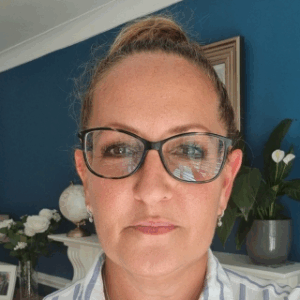Key Takeaways
| Legal Point | Details |
|---|---|
| Time Limits | Most medical negligence claims must be brought within 3 years of knowledge of the injury under the Limitation Act 1980. |
| Causation Requirements | You must prove both breach of duty and that this breach directly caused your harm, following the principles established in Bolam v Friern Hospital Management Committee [1957]. |
| Expert Evidence | Medical expert testimony is essential – the court requires professional opinion on whether care fell below acceptable standards. |
| No Win No Fee | Conditional Fee Arrangements allow you to pursue claims without upfront costs, with After the Event insurance protecting against adverse costs. |
| Compensation Types | Awards cover pain and suffering, lost earnings, care costs, and ongoing medical expenses – often reaching substantial amounts for severe cases. |
| NHS vs Private | Claims can be made against both NHS trusts and private healthcare providers under the same legal principles. |
| Children’s Claims | Special provisions apply – the 3-year limit doesn’t begin until the child reaches 18, extending their right to claim until age 21. |
Introduction
When Sarah walked into her local Liverpool hospital for routine surgery, she never imagined she’d wake up with permanent nerve damage caused by surgical error. Unfortunately, medical mistakes happen more often than most people realise. Moreover, the consequences can be devastating for patients and their families.
Medical negligence claims require specialist legal expertise because they involve complex medical evidence and strict procedural requirements. Furthermore, healthcare providers often have substantial legal teams defending these cases. You need experienced medical negligence solicitors who understand both the legal framework and medical complexities involved.
Our Liverpool medical negligence team has successfully handled hundreds of clinical negligence cases over the past decade. Additionally, we work exclusively on a no win no fee basis, ensuring you can access justice without financial risk. This article will guide you through everything you need to know about pursuing a medical negligence claim in Liverpool.
Right then, let’s explore the key aspects of medical negligence law and how to build a successful claim.
Understanding Medical Negligence in UK Law
Medical negligence occurs when healthcare professionals fail to provide care that meets acceptable professional standards. Consequently, patients suffer harm they wouldn’t have experienced with proper treatment. The legal test stems from the landmark Bolam case, which established that professionals must act according to practices accepted by responsible medical opinion.
Proving the Elements of Negligence
To succeed in your claim, you must establish three critical elements. First, the healthcare provider owed you a duty of care. Second, they breached that duty by falling below acceptable standards. Third, this breach directly caused your injury or made your condition worse.
The causation element often presents the biggest challenge. Therefore, expert medical evidence becomes crucial in demonstrating the link between substandard care and your harm.

Recent cases show that courts scrutinise causation carefully. For instance, if you would have suffered the same outcome even with proper care, your claim may fail. However, if treatment delays worsened your prognosis or caused additional suffering, you may still recover compensation.
- Duty of care – Established once treatment begins
- Breach of duty – Care falls below reasonable standards
- Causation – Direct link between breach and harm
- Harm suffered – Physical, psychological or financial damage
Most importantly, remember that poor outcomes don’t automatically mean negligence occurred. Medicine involves risks, and sometimes complications arise despite proper care.
Types of Medical Negligence Claims We Handle
Liverpool medical negligence solicitors encounter various types of clinical errors. Subsequently, we’ve developed expertise across multiple medical specialties. Surgical errors represent a significant portion of our caseload, including wrong-site surgery, retained instruments, and damage to surrounding organs.
Common Categories of Medical Mistakes
Misdiagnosis and delayed diagnosis cases frequently result in serious consequences. When doctors fail to recognise symptoms or order appropriate tests, conditions can progress unnecessarily. Cancer misdiagnosis claims often involve the most substantial compensation awards due to reduced survival prospects.
Birth injury claims require particular sensitivity and expertise.

Medication errors cause significant harm when wrong drugs are prescribed or incorrect dosages given. Furthermore, drug interactions that should have been identified can lead to serious adverse reactions. Our team works with pharmaceutical experts to analyse these complex cases.
These cases often involve multiple defendants including obstetricians, midwives, and hospital trusts. Additionally, the long-term care needs of injured children require careful assessment for future loss calculations.
- Wrong medication prescribed or administered
- Surgical instruments left inside patients
- Anaesthetic awareness during operations
- Failure to obtain proper consent
- Hospital-acquired infections due to poor hygiene
Mind you, each case requires thorough investigation and expert medical analysis to determine liability.
The Claims Process and Legal Requirements
Starting a medical negligence claim involves several critical steps. Initially, we obtain your complete medical records and arrange for expert review. This process can take several months because thoroughness is essential for success. Moreover, we must comply with the Pre-Action Protocol for Resolution of Clinical Disputes.
Pre-Action Protocol Requirements
The Protocol requires us to send a Letter of Claim to the healthcare provider within specific timeframes. They then have four months to investigate and respond with a Letter of Response. During this period, both sides should attempt resolution without court proceedings. However, if negotiations fail, we can issue proceedings in the appropriate court.
Expert evidence plays a crucial role throughout the process.

We instruct independent medical experts who review your case and provide written reports. These experts must demonstrate that the care you received fell below acceptable standards. Furthermore, they must explain how this substandard care caused your injuries.
The court requires experts to be independent and objective. Therefore, they have duties to the court that override any obligations to the party instructing them. Our Liverpool personal injury solicitors work closely with recognised medical experts across all specialties.
- Obtain complete medical records
- Instruct appropriate medical experts
- Send Pre-Action Protocol letter
- Negotiate settlement or issue proceedings
- Attend court hearings if necessary
Spot on – proper preparation significantly improves your chances of success.
Compensation and Damages in Medical Negligence Cases
Medical negligence compensation aims to put you in the position you would have been without the negligent treatment. Consequently, awards can be substantial when injuries are severe or life-changing. General damages compensate for pain, suffering, and loss of amenity, whilst special damages cover financial losses.
Calculating Your Compensation Award
Future loss calculations require detailed assessment of your ongoing needs. We work with medical experts, care experts, and employment specialists to quantify these losses accurately. Additionally, we consider the impact on your earning capacity and career progression.
Care costs often represent the largest element of compensation in serious cases. When negligence results in disability requiring ongoing care, awards must fund professional care for your lifetime. Therefore, we instruct care experts to assess your needs and calculate appropriate provision.

The Judicial College Guidelines provide framework figures for different types of injuries. However, each case is unique, and compensation reflects your individual circumstances. Furthermore, interim payments may be available to fund immediate care needs whilst your case progresses.
Our no win no fee solicitors in Liverpool ensure you can pursue maximum compensation without financial risk. We also arrange After the Event insurance to protect against adverse costs if your case is unsuccessful.
Recent substantial awards demonstrate the potential value of medical negligence claims. Nevertheless, each case depends on its specific facts and expert evidence.
Frequently Asked Questions
Generally, you have three years from the date of knowledge under the Limitation Act 1980. However, the date of knowledge might be later than when treatment occurred, particularly if you only recently discovered the negligence. Children have until age 21 to bring claims, and people lacking mental capacity may have extended time limits.
NHS claims follow the same legal principles as private healthcare claims. The NHS Resolution handles claims on behalf of NHS trusts. They have substantial resources and experienced legal teams, so you need specialist representation to level the playing field.
Yes, you can bring a claim under the Fatal Accidents Act 1976 if you were financially dependent on the deceased. Eligible claimants include spouses, children, and other dependants. These claims cover loss of financial dependency and can include bereavement damages for close family members.
Our medical negligence claims operate on a no win no fee basis through Conditional Fee Arrangements. You don’t pay legal fees if your case is unsuccessful. We also arrange After the Event insurance to protect against paying the other side’s costs. Most clients recover their legal costs from the defendant.
Admission of liability simplifies your case significantly. However, you still need to prove the extent of your injuries and quantify your losses. The hospital’s insurers may still dispute the amount of compensation you deserve, so legal representation remains important.
Whilst you can instruct solicitors anywhere in England and Wales, local expertise offers advantages. Liverpool medical negligence solicitors understand local hospitals and have established relationships with regional medical experts. Additionally, face-to-face meetings are easier when your solicitor is nearby.
Most straightforward cases settle within 12-18 months. However, complex cases involving serious injuries or disputed liability can take several years. The Pre-Action Protocol phase alone takes at least six months, and court proceedings add further time if settlement isn’t reached.
Expert fees are covered by your Conditional Fee Arrangement and After the Event insurance. You don’t pay these costs upfront, and they’re recoverable from the defendant if your case succeeds. Our experienced team manages these costs efficiently to maximise your compensation.
For expert legal advice on your medical negligence claim, contact Wolf Law today. Our specialist Liverpool team offers free initial consultations to assess your case and explain your options. Don’t let time limits expire – take action now to protect your rights.
Legal Disclaimer: This article is intended for informational purposes only and does not constitute legal advice. For specific advice relating to your circumstances, please contact Wolf Law directly to arrange a consultation with one of our qualified solicitors.







